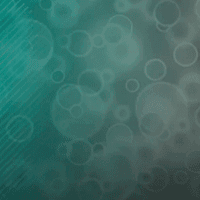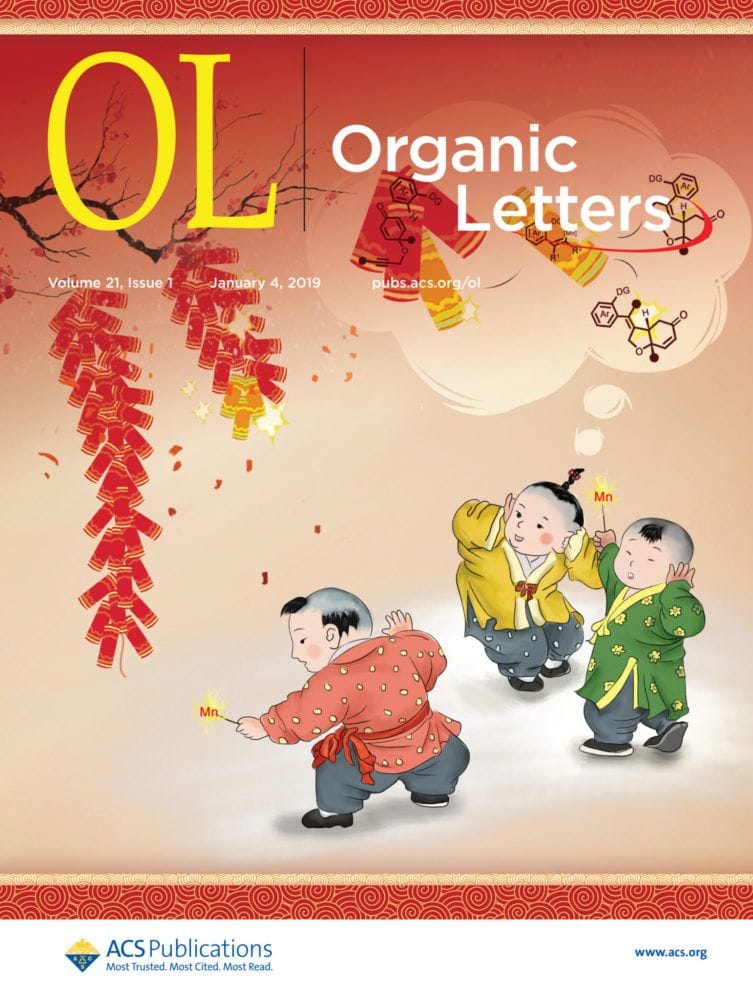Learn more about the research team—Sebastian Govaerts, Kento Nakamura, Timothée Constantin, and Daniele Leonori—and read their award-winning article.
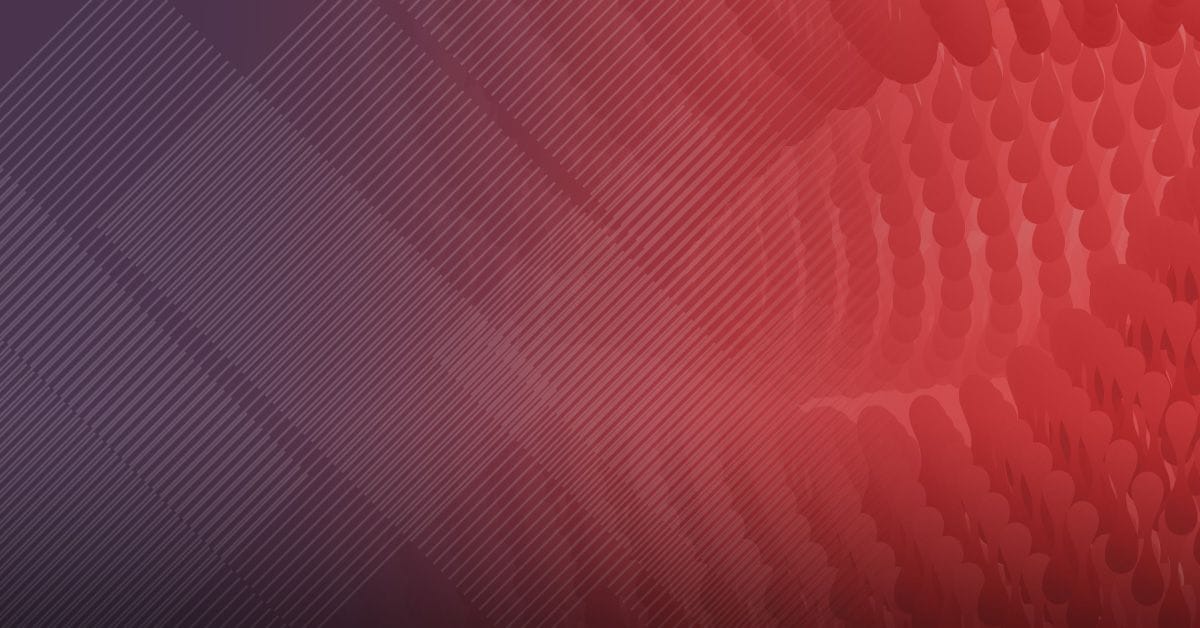
Organic Letters, in partnership with the ACS Division of Organic Chemistry, is proud to announce the winner of the 2023 Outstanding Publication of the Year Award: Sebastian Govaerts, Kento Nakamura, Timothée Constantin, and Daniele Leonori.
This award honors the research team behind an outstanding Letter published in Organic Letters in the preceding year—either in an issue or ASAP—that demonstrates creativity and impact in the field of organic chemistry, broadly based, with a focus on early-career researchers.
Daniele Leonori and colleagues are recognized this year for their article, A Halogen-Atom Transfer (XAT)-Based Approach to Indole Synthesis Using Aryl Diazonium Salts and Alkyl Iodides, which describes novel use of radical chemistry and an unusual halogen atom abstraction mechanism for synthesizing densely functionalized indoles that are highly valued in pharmaceutical development.
The research team will be honored during an ACS Division of Organic Chemistry symposium at the ACS Fall National Meeting in San Francisco, California, August 13-17. Learn more about Prof. Leonori and his group’s research below.
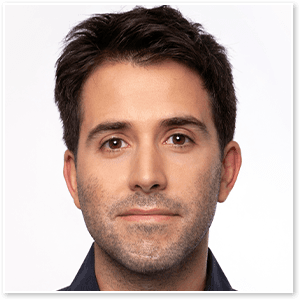
Prof. Leonori obtained his Ph.D. in organic chemistry at the University of Sheffield and then performed postdoctoral studies at Rhine-Westphalia Technical University of Aachen and the Max Plank Institute for Colloids and Interfaces. He started his independent academic career at the University of Manchester in 2014, where he was promoted to Reader in 2018 and Professor in 2020. In 2022, Prof. Leonori and his group moved to RWTH Aachen, where he is a Chair of Organic Chemistry. Research in the Leonori Group focuses on the development of novel methods exploiting the reactivity of radical and photoexcited species.
Read the interview with Prof. Leonori
What does this award mean to you?
I am incredibly grateful for this award as it recognizes the hard work done by my group members. Many of the ideas we pursue, including the one we published in this Organic Letters paper, originate from my students (not me) so I am very proud of them and their contributions.
How would you describe your research to someone outside your field of research?
My group aims to develop novel chemical reactions that can be used to simplify the preparation of high-value molecules such as drugs or agrochemicals. In particular, we focus on rapidly generating the required chemical complexity by improving the step-count over more standard approaches. Complementarily, we aim to enable molecular construction using atypical building blocks.
What do you think is the biggest challenge currently in your area of research?
I personally think that achieving selectivity in chemical reactions is still a remarkable challenge in the field. Any aspects of selectivity, like stereoselectivity, chemoselectivity or site selectivity, are worth pursuing as they can ultimately take us to the “ideal synthesis” of a molecule.
What is next in your research?
I don’t know … we have many projects that originate from an active line of research like halogen-atom transfer, which was the basis of this Organic Letters paper. I also like the idea of changing research areas quite regularly. It keeps us busy but allows us to learn new things that we can then apply back to other ongoing projects.
Have there been any highlights in your career to date that you are especially proud of?
I am most proud of the many contributions my group members have had during the years. Their ideas and inputs have had a tremendous impact on initiating new research projects, something I am very grateful for.
What would your advice be to someone just starting out in the field?
Starting as an academic can be quite stressful as we need to find support for our research and publish high-quality papers, all while balancing our personal lives. Therefore, I think it is important to pursue research problems that we are very passionate about and that we believe in. This approach makes our daily job much easier and, despite inevitable challenges, fun. I also think it is very important to find our own path rather than following the previous ones established by others.
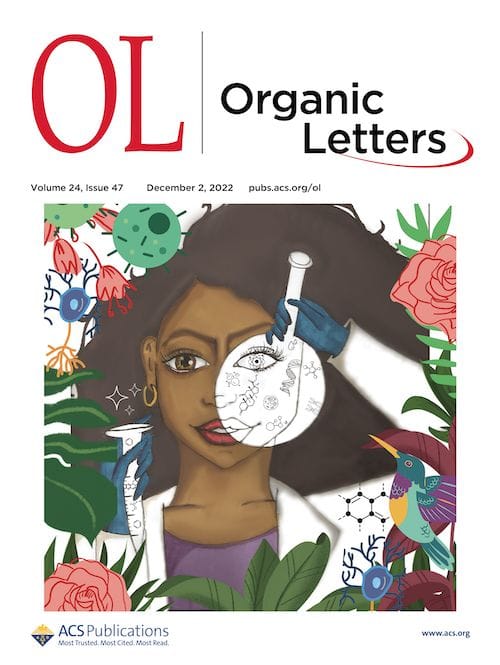
A Halogen-Atom Transfer (XAT)-Based Approach to Indole Synthesis Using Aryl Diazonium Salts and Alkyl Iodides

